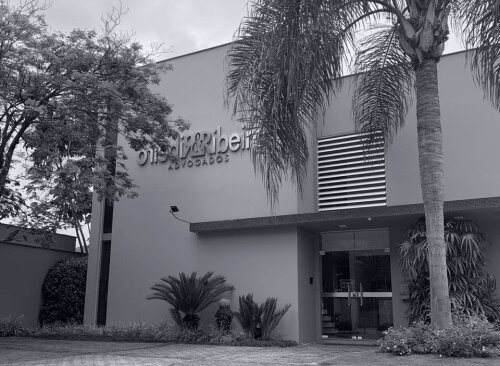Best E-commerce & Internet Law Lawyers in Brazil
Share your needs with us, get contacted by law firms.
Free. Takes 2 min.
Or refine your search by selecting a city:
List of the best lawyers in Brazil
About E-commerce & Internet Law in Brazil
E-commerce & Internet Law in Brazil is a rapidly evolving area of legal practice. Given the significant growth in online commerce and internet usage in the country, Brazil has developed a comprehensive legal framework to govern digital transactions and ensure the rights and duties of consumers and businesses are protected. Key elements include consumer protection laws specific to online transactions, data protection regulations like the General Data Protection Law (LGPD), and guidelines for digital marketing practices. Understanding these laws is crucial for anyone involved in e-commerce activities, whether as a consumer, a business owner, or a service provider.
Why You May Need a Lawyer
There are several situations in which individuals or businesses may require legal assistance in E-commerce & Internet Law in Brazil. Common scenarios include:
- Drafting and reviewing contracts: Ensuring contracts comply with the latest regulations and protect your interests.
- Data privacy issues: Navigating compliance with Brazil's data protection laws, especially the LGPD.
- Consumer disputes: Handling disputes that arise from online transactions, including product returns, refunds, and service guarantees.
- Intellectual property rights: Protecting trademarks, patents, and copyrights in the digital space.
- Regulatory compliance: Staying compliant with evolving e-commerce laws and avoiding fines or legal penalties.
- Cybersecurity incidents: Managing legal consequences and responses to data breaches or cyberattacks.
Local Laws Overview
In Brazil, several key laws are relevant to E-commerce & Internet Law:
- Consumer Protection Code: Governs consumer rights in digital transactions, ensuring fairness and transparency in e-commerce practices.
- General Data Protection Law (LGPD): Sets the framework for data protection and privacy, similar to the EU's GDPR, and applies to any entity handling personal data in Brazil.
- Marco Civil da Internet: Often referred to as the "Internet Bill of Rights," it establishes principles, guarantees, rights, and duties for the use of the internet in Brazil.
- Copyright Act: Protects intellectual property in digital content, ensuring creators can defend their rights against unauthorized use.
- Electronic Commerce Decree: Mandates clear information on platforms, security, and consumer rights specifically for e-commerce businesses.
Frequently Asked Questions
What types of businesses are covered under Brazil's E-commerce laws?
All businesses conducting commercial activities online in Brazil, including those targeting Brazilian consumers from abroad, must comply with local e-commerce regulations.
What are the essential components of a valid e-commerce transaction?
Key components include clear terms of service, a secure payment gateway, transparent pricing, data protection compliance, and mechanisms for resolving disputes.
How does the LGPD affect e-commerce businesses?
E-commerce businesses must implement comprehensive data protection measures, obtain consent from users for data processing, and ensure data subjects' rights are respected.
Can I use cookies on my website under Brazilian law?
Yes, but you must inform users and obtain their consent, as per the LGPD, regarding any data collected through cookies.
What are the penalties for non-compliance with e-commerce regulations?
Penalties vary from fines, which can be a substantial percentage of a company's revenue, to restrictions on data processing activities.
Is dispute resolution mandatory for e-commerce businesses in Brazil?
While not mandatory, providing a responsive and effective dispute resolution mechanism is strongly advised to build trust and comply with consumer protection standards.
What should I include in my website's privacy policy?
Include information on data collection, usage, sharing, security measures, and users' rights regarding their personal data.
How often should I update my e-commerce policies?
E-commerce policies should be reviewed regularly, at least annually, or whenever there are significant changes in relevant laws or business practices.
Are international e-commerce businesses subject to Brazilian laws?
If they offer goods or services to Brazilian consumers or process data of individuals located in Brazil, they are subject to Brazilian laws.
How can I ensure compliance with Brazilian internet laws?
Regular audits, legal consultations, staff training, and staying informed on regulatory changes can help ensure compliance.
Additional Resources
Here are some resources that may be helpful:
- Brazilian Internet Steering Committee (CGI.br): Provides information and guidance on internet governance in Brazil.
- National Data Protection Authority (ANPD): The regulatory body for issues related to the LGPD.
- PROCON: State-level consumer protection agencies that offer support in consumer rights issues.
- Ministry of Justice: Offers resources and information on consumer rights and e-commerce laws.
Next Steps
If you need legal assistance in E-commerce & Internet Law in Brazil, it is smart to follow these steps:
- Research and identify a law firm or lawyer that specializes in e-commerce and internet law.
- Prepare documentation related to your specific issue, such as contracts, terms of service, or correspondence related to disputes.
- Schedule a consultation to discuss your needs and evaluate the legal options available to you.
- Consider joining industry associations or business groups for networking and additional resources.
Remember, timely and knowledgeable legal advice is crucial in navigating the complexities of e-commerce and internet law to protect your interests and ensure compliance with legal standards.
Lawzana helps you find the best lawyers and law firms in Brazil through a curated and pre-screened list of qualified legal professionals. Our platform offers rankings and detailed profiles of attorneys and law firms, allowing you to compare based on practice areas, including E-commerce & Internet Law, experience, and client feedback.
Each profile includes a description of the firm's areas of practice, client reviews, team members and partners, year of establishment, spoken languages, office locations, contact information, social media presence, and any published articles or resources. Most firms on our platform speak English and are experienced in both local and international legal matters.
Get a quote from top-rated law firms in Brazil — quickly, securely, and without unnecessary hassle.
Disclaimer:
The information provided on this page is for general informational purposes only and does not constitute legal advice. While we strive to ensure the accuracy and relevance of the content, legal information may change over time, and interpretations of the law can vary. You should always consult with a qualified legal professional for advice specific to your situation.
We disclaim all liability for actions taken or not taken based on the content of this page. If you believe any information is incorrect or outdated, please contact us, and we will review and update it where appropriate.
Browse e-commerce & internet law law firms by city in Brazil
Refine your search by selecting a city.














